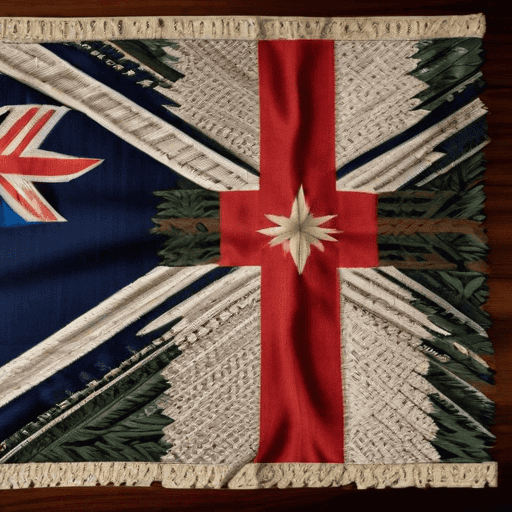Timoci Biroko and Alumita Tabua from Cawaira near Labasa made a significant journey to Suva this week to commemorate the 160th anniversary of Melanesian laborers arriving in Fiji. Cawaira, which was established by descendants of Solomon Islanders brought to Fiji in the late 1800s, symbolizes a history of resilience and industriousness among these communities.
Historically, the Cawaira settlement, along with others, owes its existence to Solomon Islanders brought by sugarcane planters to work on plantations. One of these forebears, Jale Marata, retired in 1950 after working at the Labasa sugar mill and later honored his origins by naming his home “Marata” on Mali Island.
Mr. Biroko, reflecting on his childhood in Cawaira, participated in a dialogue at the iTaukei Trust Board complex, where he and other Melanesian representatives convened with the Minister for iTaukei Affairs, Ifereimi Vasu. They addressed ongoing struggles for recognition and equitable treatment within society. During the discussion, Biroko highlighted the discrimination faced by their community and expressed a strong resolve to advocate for stability and improvement for future generations.
Cawaira is currently home to about 70 households, where residents cherish their heritage and aspire to foster better educational and economic prospects for their children—emulating the tenacity of their ancestors. Mr. Biroko poignantly noted the significant contributions made by their forefathers, who built infrastructure, cultivated farms, and were pivotal in the development of Fiji despite their forced migration.
Between 1864 and 1911, over 27,000 people from the New Hebrides, Solomon Islands, and Kiribati were brought to Fiji through a coercive system known as blackbirding. This system transported them first to Ovalau before they were distributed across various regions for labor on coconut plantations. Although many Melanesian communities have begun to integrate into Fijian society, a significant portion still resides in informal settlements.
The Fijian government is now taking steps to formalize these communities, acknowledging their resilience and contributions that, historically, have not been widely recognized. During the anniversary events in Suva, the Melanesian community gathered to reflect on their past and engage with Minister Vasu, who recognized the enduring legacy of Fiji’s Melanesian descendants. He issued an apology on behalf of the government for the lack of recognition over the years.
Minister Vasu emphasized the importance of the anniversary theme, “Unshackling Our History: Restoring Melanesian History in Fiji,” as a vital part of reshaping the national narrative around the contributions of these communities. The government also allocated $100,000 for the celebration, which featured cultural performances and parades, helping to unite the community in a spirit of pride and remembrance.
This anniversary not only marks a historic milestone but also signifies a hopeful step forward in recognizing and celebrating the contributions of Melanesian communities in Fiji, paving the way for a future grounded in inclusion and respect for all cultures.

Leave a comment